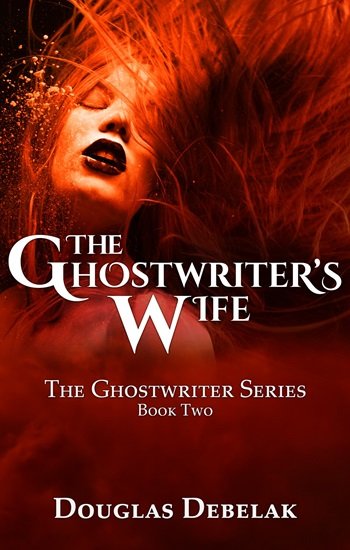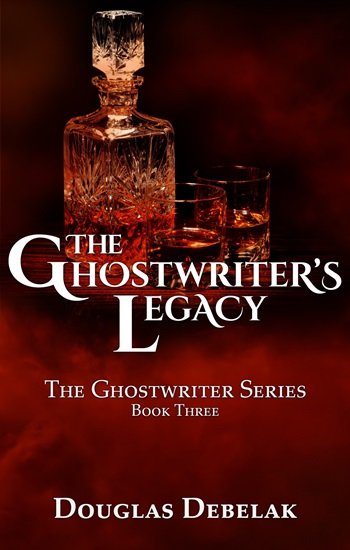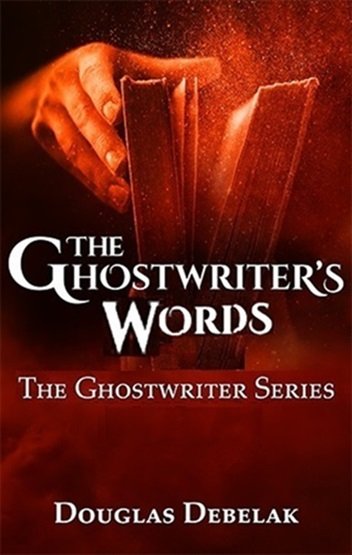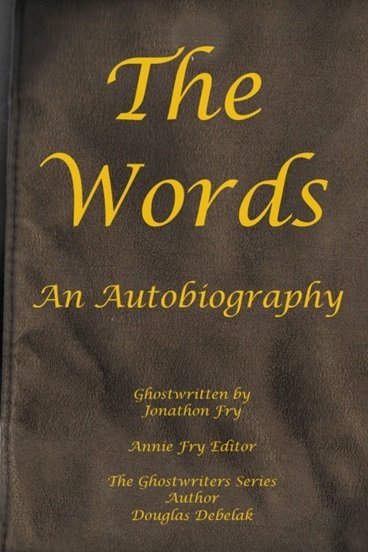Titles





“What if God was one of us?”
Credit to Eric Bazilian for those brain-rattling words, and much appreciation to Joan Osborne, whose resonating voice left them forever imprinted upon my soul. Granted, Alanis Moresette’s later rendition was every bit as compelling and beautiful, but it was Joan whose voice I heard first. Although it was Alanis who played the role of God in the movie Dogma. No, apologies, Alanis, it was Joan.
Much earlier, thanks to my mother, who, along with various teachers along the way, promised that if I would only apply myself, I could be whatever I wanted when I grew up. Little did they know how seriously I would take them. “What if one of us were God?” Assuming the truth of Eric’s words, doesn’t that follow?
Finally, at some point, I read an interview with an author, whose name I unfortunately don’t recall, nor where the interview appeared. However, what has stuck with me is, from this author’s perspective, the best thing about being a writer is the ability to be anyone or anything you can imagine. I took that to heart on many levels. For one, I was never the bad boy my heart secretly longed to be, although I’ve had some fine examples.
So, I had quite the blend bubbling away in the cauldron of my imagination for years before I finally had the luxury of conjuring that well-stewed concoction into a narrative that came close to making sense, if only to me. It shouldn’t be entirely surprising that the central narrative of The Ghostwriter Series, “The Words,“ would emerge as what purports to be the Autobiography of God or the Creator as He prefers. My mother and teachers promised that I could be anything I wanted, and as a writer, I had the means to be anyone or anything I wanted to be, including God or a bad boy. And, perhaps, occasionally both?
The Creator, the title which He prefers, announces, “In the beginning… I was born.” Which may not have the head-spinning, neck-breaking torque of “What if God was one of us?” but hopefully it provides enough of a twist to give your imaginations a turn toward the path I chose to follow.
The Creator explains that He once lived a life much like ours. He did not create the Universe. He exists within it, but He does claim credit for the creation of the tiny bit, among a galaxy of minute sparkly bits, that we call the universe. The Creator did not invent sex, much as He would love the credit. It predates Him, but it has been and remains one of His favorite things. He did not invent sin, another concept commonly attributed to but predating Him, which He has concluded is a recurring creation of our own making. So, there is no need to seek His forgiveness, only that of those whom, through our actions, we have harmed, and I would add, from ourselves.
If “What if God was one of us?” implies, as my imagination believes it does, “One of us was God.” How might that come about?
Before dismissing such speculation as utter nonsense, consider: Not near so far back as ‘In the beginning,’ but ‘Once upon a time… a long, long time ago’ an audacious ape dared to stand on its hind legs, raise its head above the others, and, yes, consider itself superior. Jump ahead a few million years to the first written words of this ape’s descendants, our ancestors, which I believe are the first documented proof of our being active participants in our ongoing creation, that of our reality, and of the universe in which we exist. Are we not creators? Therefore, minor gods, on the rise, and who knows what the future might hold if we don’t destroy ourselves before fulfilling our ultimate potential.
In light of how far we’ve come from that first self-important, entitled, bipedal ape, imagine explaining your Smartphone to the Inquisition a mere five hundred years ago. Then, looking ahead five hundred years from the present, consider what explanations, if given the opportunity, we would undoubtedly demand of our descendants for all the wonders that will have become as common a part of their daily lives as Smartphones have become to ours. If they were to show up in our time with such unexplainable wonders, would we, if not burn them as witches, cancel them? Or run for our lives in terror? And, considering the current ever-accelerating pace of technological and medical innovation, how far into the future before the descendants of our descendants, and far more distant descendants of that audacious bipedal ape, would appear to us to be gods, perhaps immortal, with powers as incomprehensible to us as those of Greek mythology? Given this, are there any limitations, beyond our imaginations, to what we might ultimately become?
From an entirely different perspective: How in the past have we received messages, such as the vast array of Holy texts, purported to be ‘from on high?’ Generally, through the words of fellow bipedal apes, correct? A few supposed exceptions, such as stone tablets, but what evidence do we have of those beyond the words of fellow bipedal apes?
Updated Editions
Note: The three original books of The Ghostwriter‘s Series have been updated and re-reissued as new editions, having invested my ten thousand hours since the original release of the series, and – as per Malcolm Gladwell’s Outliers – believing I should now, hopefully, be capable of doing a better job. A fourth, long-awaited, addition to the series, hanging for years like ripe fruit, threatening to drop off the vine on its own, has finally succumbed to gravity, or been pried from my fingers, reluctant to let it go. So, stay tuned.
In the first book of the series, The Involuntary Ghostwriter, JONATHAN FRY, thanks to a hard-earned financial boon, finds himself with a year to fulfill a lifelong dream, to write a novel, which, as many do, begins as a largely fictionalized memoir of the author’s early life. But he soon finds himself haunted by powerful dreams, and the memories he feels compelled to write about are increasingly no longer his at all.
Might this not have been similar to the experiences of the authors of our Holy texts? Who, through no choice of their own, find themselves becoming conduits channeling the words of God, or the Creator as He prefers, or whoever the voices in their heads claim to be? Call these unfortunate individuals what? Prophets? Schizophrenics? Involuntary Ghostwriters?
The twin narratives of The Involuntary Ghostwriter also represent life’s bookends: the coming of age and the coming to terms with navigating one’s latter years – as in the case of Jonathon Fry, not only sensing life slipping away, desparate to grasp what he can while he still can, but wrestling with an unknown voice in his mind, hijacking his memories, leading him to question whether those he doesn’t remember as his own could have been whispered to him by a voice of some other being, the Creator, or be the product of early-onset dementia, the result of a terminal brain tumor, or, hopefully, if unlikeliest of all, merely his awakened imagination.
The Ghostwriter‘s Wife, the second book of The Ghostwriter‘s Series, as with The Involuntary Ghostwriter, consists of intertwining narrative threads. One, that of the Creator, while the other, as the title suggests, tells the story of ANNIE FRY, the Wife of Jonathon Fry, the Involuntary Ghostwriter. Stumbling upon Jonathon’s computer, which he had neglected to put away and left sitting open again, Annie decides that Jon must intend for her to read what had kept him so absorbed and off-kilter the past year. What she will later entitle “The Words” impacts Annie in ways she could never have imagined, leading her not only to look more kindly and empathetically upon her husband but also to experience an awakening of her own. She takes charge of her husband’s blog, editing what he has written with his blessing, and having it published as a book. She later reluctantly agrees to append the subtitle “An Autobiography” at the publisher‘s request. But they never speak of it other than as simply The Words.
The Words continue the narrative of the future Creator and His Wife. She secures a position at a medical research lab, frustratingly stealing what few hours She can for the research important only to Her, while impatiently awaiting the freedom to pursue what She will, no matter how far-fetched, foolish, or ill-conceived, without hiding or seeking permission, which She knows She’ll never receive. The future Creator forms a ‘Start Up,’ producing innovations that will change the world, with the unintended consequence of him eventually becoming the wealthiest man in the world. But wealth was never a goal of its own, having the sole intent of buying His Wife, as He’s promised, and does, the freedom to pursue the Fountain of Youth, words They would never dare say out loud.
And, in their rare free time, they practice Their ‘Favorite Thing’ as often as possible, discovering Wigs-And-Things, and Naked-Hide-And-Seek, running through an old Victorian mansion they’ve purchased, before filling it with shaven-headed, legal if barely, teenage geniuses who assist creating all these world changing innovations, and found having orgies in the attic.
And discovering the Fountain of Youth, but at what cost?
The Ghostwriter‘s Legacy, the third book in the series and the conclusion of The Words, continues the narrative of the still future Creator’s long, long march toward His destiny, intertwining the story of SAMMY FRY, who adopts his great-grandfather’s last name, after discovering, at the age of six, a copy of The Words – An Autobiography, on his great-grandfather‘s bookshelf. Promptly confiscated by his Grannie Annie, claiming the boy is far too young to be reading such things. Sammy’s great-grandfather, The Involutary Ghostwriter, however, shrugs, retrieves the book from his wife, signs and inscribes it (‘To my Great-grandson, Sammy, Dream big and believe in your ability to achieve them. You can be whatever you want to be.’ And he hands the book back to the boy, spinning another unintended narrative thread.
Later, noticing the first signs of wear, Sammy sets aside his precious, original, signed, and inscribed copy of his great-grandfather’s book, The Words – An Autobiography, and by the time he reaches high school, has read the book, from cover to cover, enough times to wear out multiple inexpensive paperback and second-hand copies. Despite his Great-grandfather’s claims to the contrary, that the book is only fiction, Sammy believes The Words might contain the much-sought formula for the legendary Fountain of Youth.
Some years later, now in college, Sammy convinces EVE, a young woman he’s known since grade school, to read a copy of The Words he’d found at the college book store, and hopefully join him in his pursuit. Eve, who’d wanted nothing to do with Sammy, from grade school through high school, calling him ‘Sperm,’ like the rest of their classmates, because of the stupid white hoodie he’d insisted on wearing. She accuses Sammy of stalking her when they encounter one another on campus, discovering to her dismay that they’ve enrolled in the same university. Eve, however, begins to see Sammy differently when she learns that, while she is a mere freshman, pre-med, biology major, Sammy had been accepted directly into an elite PhD program.
Together, as inconceivable as it once would be, they soon become a couple, pursuing the footsteps of the Creator and His Wife, disregarding the advice of Sammy’s great-grandfather, with the intent of proving his book isn’t merely fiction.
Newly Released!
The Ghostwriter’s Words [spoiler alert!] centers around the one-thousandth birthday of SAMMY FRY of The Ghostwriter’s Legacy, the great-grandson of The Involuntary Ghostwriter, Jonathon Fry. Sammy has been proven right, and his great-grandfather mistaken, since Sammy is still around to celebrate such an improbable birthday. The Words does contain the formula for the Fountain of Youth, and the book is not merely fiction. In light of this, The Words has become the Holy Book of The Faith, a prominent religious group.
Along with misappropriating his great-grandfather’s book, The Faith also steals the remainder of Sammy’s intellectual property. Most importantly, the work of his late wife, Eve, from which they sell immortality to the wealthiest men in the world at the price of their entire fortunes, arguing the cost is only fair, since these men can’t take their wealth with them and will have forever to earn it back.
The Faith declares Sammy’s great-grandfather to be The Prophet, and Sammy, to his annoyance, The Descendant, while declaring it a capital crime to be an unsanctioned Immortal.
Then there is Sara, the enigmatic young woman Sammy discovered centuries earlier, emerging from the pool beneath the waterfall on his oceanfront estate, and she has since become an integral part of his life. Sara is away, on another of her wanderlusts, as she calls them, and has not made it home in time to wake Sammy on the morning of his thousandth birthday, as he’d desperately hoped. So, instead, Sammy is wandering his beach, alone, with a partially full, or empty, as you prefer, decanter of Scotch and a copy of his great-grandfather’s book, The Words, reading about the earlier thousandth birthday of the then-future Creator. (Not the precious original, signed and inscribed copy, remaining safely enclosed in its special case on the mantle of his mansion behind him, where it remains beyond the reach of The Faith.)
And also newly released!
The Words – An Autobiography is the extracted central narrative of the first three books of The Ghostwriter’s Series – The Words, originally intended to be the entire and only story, before Jonathon Fry interjected himself, as its author, and began spinning off parallel narratives. I had, at one point, planned to kill Jonathan off, in part to avoid what was becoming increasingly convoluted and confusing to many early readers, as well as to myself. Thankfully, I think, maybe, perhaps, I managed to resist such temptations.
If you’ve read the initial three books of the series, then you will have read The Words, and there is no need to reread it unless you feel the need for a refresher. Then again, The Words might be seen in a different light after reading The Ghostwriter‘s Words.
Apologies if portions of the narratives above are more graphic or explicit than your tastes, but the voice from beyond can occasionally be that of a bad boy, or ‘dirty old man.’ For the rest of you, you’re welcome, enjoy.